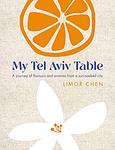Tommaso Campanella
Tommaso Campanella, born on September 5, 1568, in Stilo, Calabria, Italy, was a philosopher, theologian, astrologer, and poet. He is best known for his work 'The City of the Sun' ('La città del Sole'), a philosophical treatise describing a utopian society where goods, women, and children are held in common. Campanella was a Dominican friar who advocated for the reform of the church and society, drawing on both Renaissance humanism and the thought of the ancient Greek philosopher Plato. His radical ideas led to his imprisonment by the Spanish authorities for heresy and sedition. He spent 27 years in prison, during which time he continued to write on philosophy, theology, and politics. He died on May 21, 1639, in Paris, France.
Books
This list of books are ONLY the books that have been ranked on the lists that are aggregated on this site. This is not a comprehensive list of all books by this author.
-
1. The City Of The Sun
"The City of the Sun" is a philosophical work that presents a visionary society where goods, women, and children are held in common. It describes a utopian city governed by a theocratic and philosophical elite, where the inhabitants live harmoniously, dedicating their lives to knowledge, virtue, and the collective well-being. The city is structured with concentric walls adorned with scientific and artistic knowledge, reflecting the society's dedication to intellectual enlightenment and the eradication of ignorance and vice. The work serves as a critique of European society of the time, proposing a radical alternative that emphasizes communal living, education, and the blending of religion and science as the foundations of a just and prosperous community.
The 2758th Greatest Book of All Time -
2. Poems Of Tommaso Campanella
The book is a collection of philosophical and visionary poetry written by a 16th-century Italian philosopher and poet. The poems delve into themes of utopian society, metaphysics, and the critique of contemporary political and religious institutions. The author's work reflects his radical ideas and his quest for knowledge, as well as his experiences of imprisonment due to his heterodox beliefs. His poetry is characterized by a deep sense of spirituality and a longing for intellectual and social reform, offering a glimpse into the mind of one of the early modern period's most provocative thinkers.
The 7152nd Greatest Book of All Time

